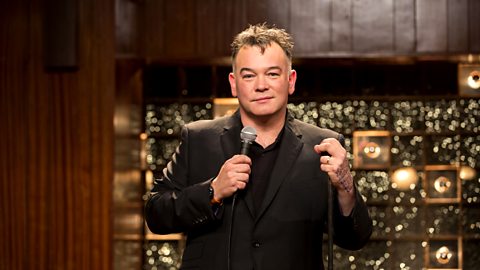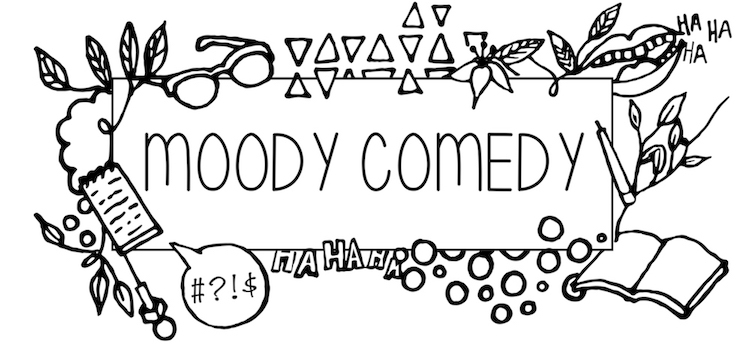With every new series of Stewart Lee’s Comedy Vehicle, I find myself not wanting to watch for fear of those who may judge but then almost immediately concluding that I do not care. Yes, Lee is a spiteful comic, but he is also incredibly astute. One can’t help but admire his craft, even if you don’t agree with his viewpoints, which are of course satirically exaggerated anyway, suggesting that those who feel alienated by his comedy may actually be misinterpreting his message. And with his frequent cuts to camera, a television audience cannot help but be drawn in, without suffering the inevitable heart palpitations that would surely follow with such a predicament.
Take, for example, Episode 2, which sees Lee dryly dissect the ever-prominent issue of Islamophobia and the questions it raises with regard to mocking religion through the medium of stand up comedy. The surface layer can easily cause offence but it would be short-sighted of the viewer to assume that Lee wants us to take what he says at face value. Episode 1 sees the comic approach the topic of prostitution and though many may switch off at quips about such matters coming from someone like the esteemed Stewart Lee we see before us, we hold out for lines that release the tension, such as empathising with those who “provide a service people crave and still be despised for it”.

© BBC
His observational stints are deliberately placed throughout the series, disguised as digs at others in the comedy industry but serving a greater purpose: as a release of comedic tension. It may seem to be a strange decision, but one that shows great integrity, for Lee to limit his observational material to the extent that he does as he could effortlessly rely on this fine-tuned skill for significant segments of the programme. But it appears that he would interpret this creative decision as laziness and if there is one thing that Stewart Lee abhors (though of course there can’t only be one thing) then it is laziness. This can be appreciated by many, but sometimes it feels like his comments get a little too specific, a little too personal. I genuinely don’t believe that his foremost intention is to cause harm to those he ridicules for it is, most often anyway, their ideas he ridicules rather than their personalities. It seems that offence is a necessary by-product of the message and perhaps we shouldn’t cower from comedy that offends.
All that said, I don’t feel as though I can trust Stewart Lee; perhaps what we read into his jokes are not what he truly means, but I fully appreciate where he is coming from on the majority of occasions, if I am, in fact, correct in where I think he is coming from. A part of me wishes that Chris Morris’ segments were longer or more frequent during each episode, but perhaps this would dilute the impact of Morris’ scorn. Antagonism to say the least, Morris’ role is to demolish any self-righteousness in Lee’s character that has been allowed to fester during his stand up performances on film. The shock of hearing an interviewer speak so rudely to his interviewee, as though there is genuine contempt for Lee and his comedy, is yet another smart release of tension, often resulting in full-blown arguments and a lot of swearing.
Many have accused Lee of making comedy that is self-indulgent, particularly, as he mentions, “those younger comics they have now,” but only a small amount of closer analysis can enable us to see that there is a reason behind every decision. Stewart Lee overtly works to manufacture an ‘in group’ and an ‘out group’ through his stand up and can I be blamed for wanting to be in the former? I write this on principle, knowing that many would avoid writing an article about the man who famously slams all critics of his work, and coming from a wholly appreciative perspective. I still pray to God that he doesn’t read this.
